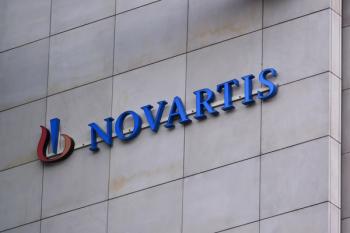
- Pharmaceutical Executive-02-01-2022
- Volume 42
- Issue 2
What’s Up in Biotech These Days? Not Much, Unfortunately
Biopharma stock performance continues to struggle.
Fundamentals in the biopharma industry generally are healthy, with the leading companies continuing to report sales and earnings ahead of expectations and raising forward guidance. That said, the sector’s performance continues to lag the market. The large cap pharma DRG index was up a historically very strong 18.7%, largely owing to a 60.4% gain in Pfizer, which of course was fueled by expected sales of $36-plus billion for 2021 and likely another $30 billion in 2022—an unprecedented windfall.
But for biotech, it’s been all downhill since the sector peaked in February 2021, coincident with the rollout of the COVID-19 vaccines and the ushering in of the reopening trade. As I write, the XBI biotech index is hitting a new 52-week low, down an unprecedented 52% from last year’s lofty perch. Last month alone, the index fell another 28% as of Jan. 28.
The IPO and follow-on market for the cash-burning sector has basically been shut down since late last year, an abrupt about-face from the open spigot of cash pouring into the sector over the past two years. In 2020, biotech was hot, and the group massively outperformed the market; a record 75 companies launched successful IPOs during the year, only to be outdone in 2021 with a total of 88 biotechs launching into the public markets. The appetite for new paper was not confined to biotech; it was across the board. In fact, securing a “bell ringing” ceremony was getting as hard to come by as a winning lottery ticket.
What’s changed?
In the initial abyss of COVID, investors turned to growth stocks and the biopharma sector, in particular, for multiple reasons: They were more impervious to the “shutdown,” benefited from the innovation renaissance clearly underway, and were viewed as the light at the end of the tunnel with the potential to lead us out of isolation with vaccines and therapeutics. And they did. Delivering on the promise, vaccines and therapeutics became available and allowed many to leave their homes.
The payback? A reopening trade that favored depressed sectors such as airlines—which were stopped dead at the door of the pandemic—quickly ensued, and investors fled growth stocks.
Piling on from there, a change in the White House did not help with the ushering in of the Biden “trifecta,” which brought in saber-rattling on drug pricing, a promise of increased scrutiny by the FTC on M&A, and a fairly opaque FDA with leadership in flux.
More recently, another blow to the bow for growth sectors has been a hawkish Fed hinting at rate hikes. Today’s pain is not confined to the biotech sector. The S&P 500 was down nearly 10% YTD at press time, putting it on track for its worst January in its almost 100-year history. OUCH.
So, here we are. Investors in biotech have recently suffered unprecedented declines. Even a successful company like Moderna was trading at $157 in late January, down 68% from its high in August 2021. That said, it did trade as low as $11 back in August 2019, for context. I guess biotech really isn’t for the faint of heart.
So, where’s the bottom?
Well, that is the question, isn’t it? At the moment, no one seems to know the answer, and history is little help. It’s difficult to call a bottom for a sector that lacks sales or earnings and is spending the cash on its balance sheet. More than 100 public biotech companies have less than 12 months of cash, and funding their pipelines looks like it will be more challenging than it has been in many years. This means investors will shun them for now, leaving those with ample cash king, at least on a relative basis.
Right now, no one is stepping up to catch the falling knife. Even cash-rich, large-cap biopharma companies, with record firepower to fund deals necessary to achieve their growth targets, aren’t stepping up in the carnage, fueling even greater pessimism across the universe of investors optimistically camped in “target” names. Hopes coming into the year that JPM would kick-start a depressed sector with juicy M&A transactions at big premiums were quickly dashed, as the “Woodstock” of biotech was but a mere whimper drowned out by yet more disappointment and lower lows for the biotech indexes.
Here’s hoping that next month will bring better news for the sector we love and need.
Barbara Ryan is Founder, Barbara Ryan Advisors, and a member of Pharm Exec’s Editorial Advisory Board
Articles in this issue
almost 4 years ago
As Change Continues, Are You Digitally Fit For the Future?almost 4 years ago
Ready for Pharma’s Next Chapteralmost 4 years ago
The Tech Perspective: Coordinating a Plan of Engagementalmost 4 years ago
The Importance of Culturally Inclusive and Relevant Marketingalmost 4 years ago
Messaging Makeoveralmost 4 years ago
Ethics of Antibioticsalmost 4 years ago
Planning for Second to Market in Orphan Disease Spacealmost 4 years ago
AI and Analytics Appear Ready to Surge in Sales and Marketingalmost 4 years ago
It’s Time for Companies To See Employees as Full-Time Peoplealmost 4 years ago
EU Steps in on Pricing, Offers Member States Aid to NegotiateNewsletter
Lead with insight with the Pharmaceutical Executive newsletter, featuring strategic analysis, leadership trends, and market intelligence for biopharma decision-makers.




